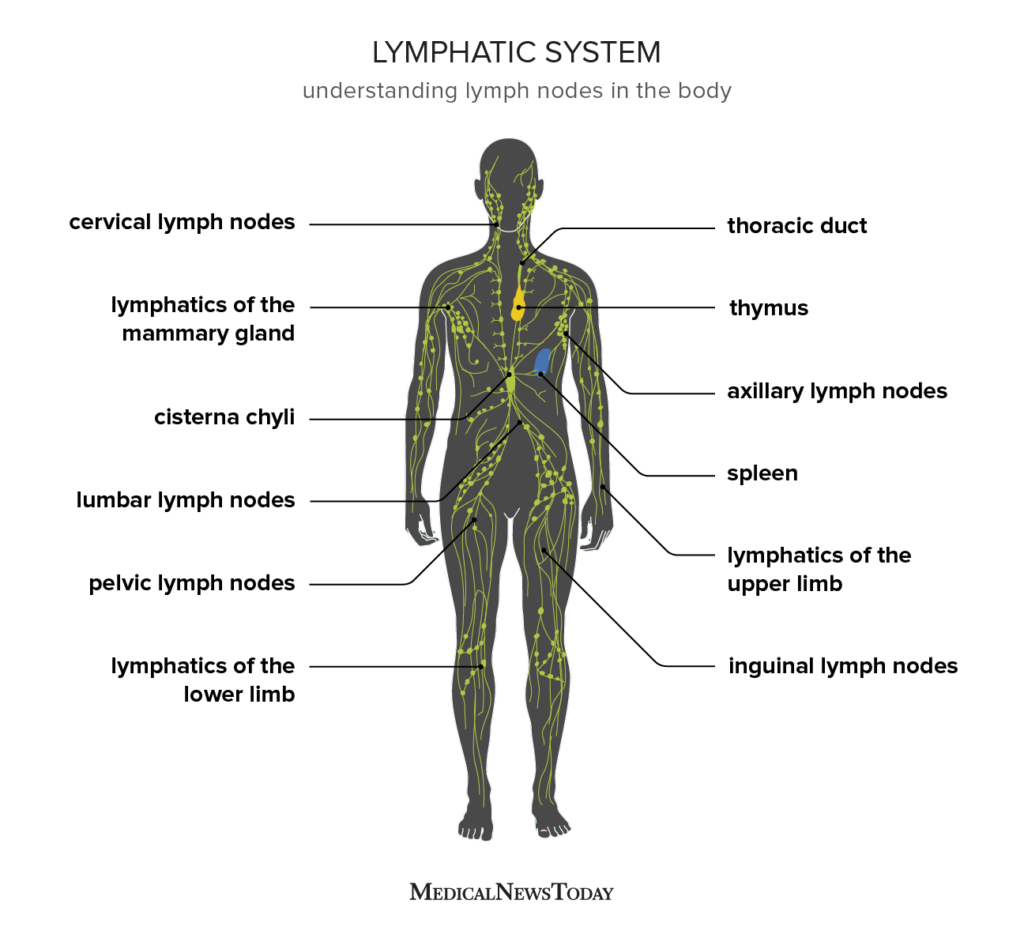In recent years there has been more information coming out about the importance of the lymphatic system as it applies to disease prevention, immune health, and vitality. While traditional medicine is slowly realizing the importance of a properly functioning lymph system, history has shown that over 500 years ago ayurvedic medicine viewed the lymphatic system as the most important system of the body. So, what does it do? In short, the lymphatic system works to detoxify the body and supply nutrients back into the system. The organs of the Lymphatic system are the spleen, thymus, tonsils / adenoids and lymph nodes. The spleen is the largest lymphatic organ, responsible for cleansing blood, the thymus is responsible for white blood cell production, and tonsils and adenoids protect the lungs from infection and bacteria. Each of these organs work together to reinforce immune health and disease prevention. The lymph vessels consist of 3 components. The lymph nodes, lymphatic fluid, and intestinal lymph.
The first component Lymph nodes- There are 600-700 lymph nodes throughout the body which serves as filtering station for the lymph fluid. They eliminate bacteria , viruses, and cancer cells to maintain healthy tissue.
The second component is lymph fluid, it contains protein, fats, and white blood cells. Lymph fluid is the results of the excess fluid that drains from the organs and the periphery of the body its purpose is to cleanse and return protein necessary for growth of the body and white blood cells called lymphocytes which are responsible for creating antibodies. An example of creating antibodies is when you get a virus, the body works very hard to fight this virus, while at the same time taking a snapshot of the virus so that the next time that virus is reintroduced the body has the weaponry to fight it. Lymphocytes also destroy cells that have been invaded by viruses or have become cancerous.
The third component is the intestinal lymph, which is responsible for absorbing long chain fatty acid, only in the intestines can long chain fatty acids be processed. It is essential for muscle development, skeletal health and also provides energy. The short and medium chain fatty acids can be processed in the circulatory system. The short and medium fatty acids are necessary for regulating fat metabolism.
The lymphatic system does quite a bit of heavy lifting to keep us healthy and can easily go unnoticed until it becomes overwhelmed by disease, surgical procedures, and stress. It is a resilient system that can be aided through exercise, stress management, lymphatic drainage massage and eating seasonally. Lastly the lymphatic system helps to maintain homeostasis by making sure that fluid balances are maintained in the body. Lymphatic drainage is a wonderful method of riding the body of excess lymphatic fluid but remember that while fluid is being released, water intake is necessary.












